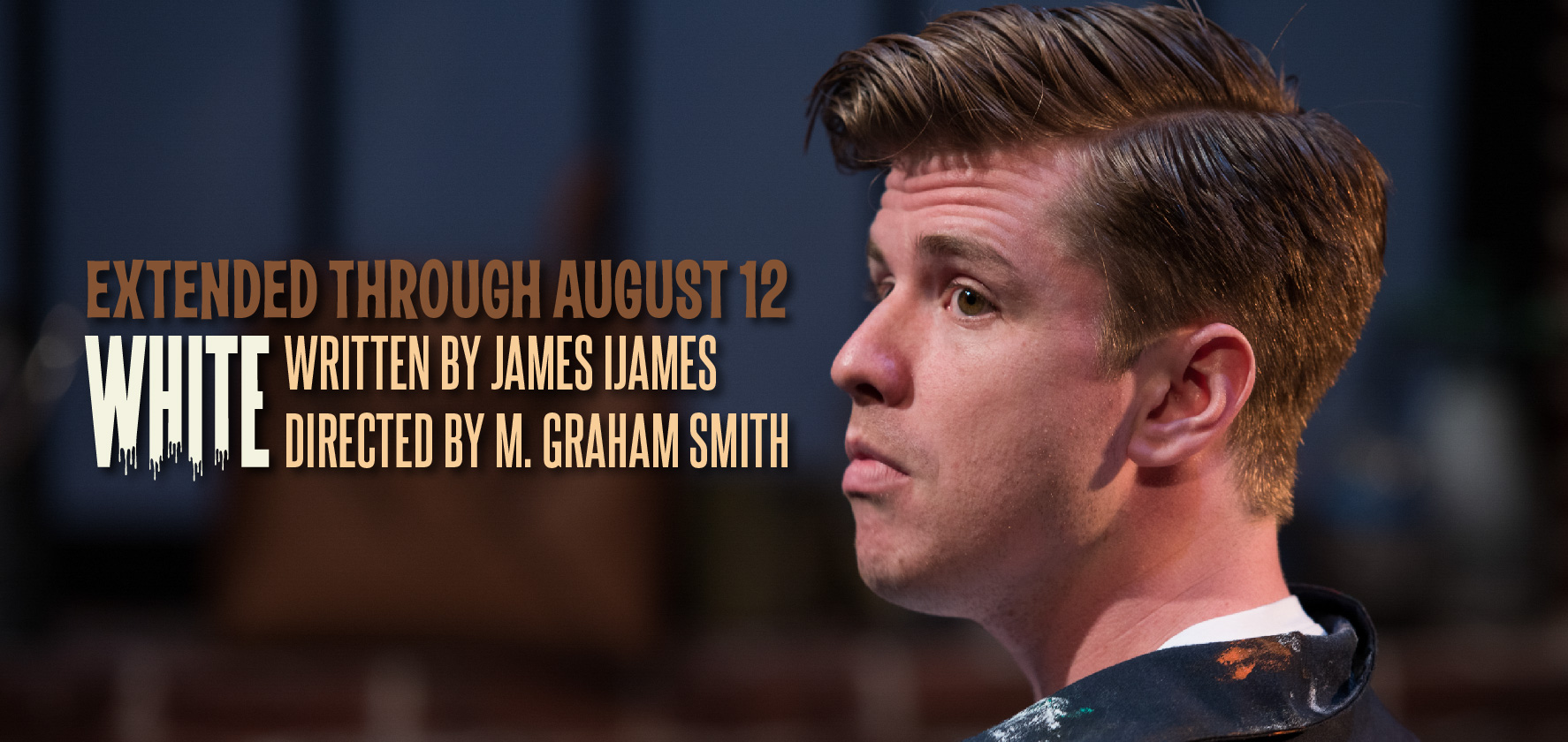The Creative Team
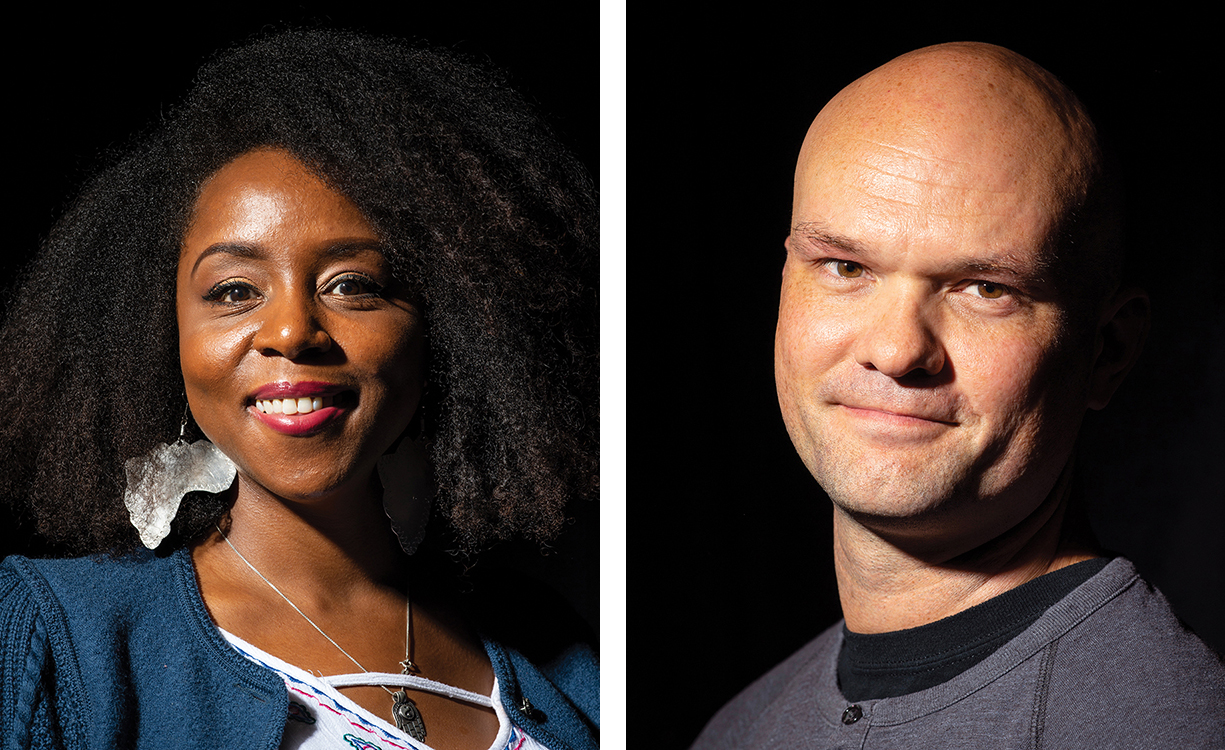
We are fortunate to have three exceptional lead artists for White: dramaturg Lisa Marie Rollins, assistant director Samira Mariama Hamid, and director M. Graham Smith. Together with the cast, they are bringing to life James Ijames’s provocative play that uses comedy to expose privilege:
As the art institutions of the U.S. begin to examine the systemic racism, misogyny, and patriarchy in their infrastructure, White by James Ijames asks us to look squarely at how those forces shape our everyday perceptions. The quest for understanding difference and inequity is painful, comic, and consequential in this modern remix of Pygmalion.
On the road to success, a group of young and ambitious creatives are enraptured in an ugly past that bleeds through every aspect of world—whether they are aware of it or not. Their individual and collective journey of self-reflection awakens vulnerability and creates space for understanding one another. Herein lies their pathway to empathy and change. There’s something incredibly smart and delectable about a piece of theater that is receptive to exposing privilege and celebrates self-efficacy.
We invite you to leap into the play’s questions and challenges for an examination of how we understand each other against a backdrop of whiteness.
—Samira Mariama Hamid & M. Graham Smith
Joe Scanlan and Donelle Woolford
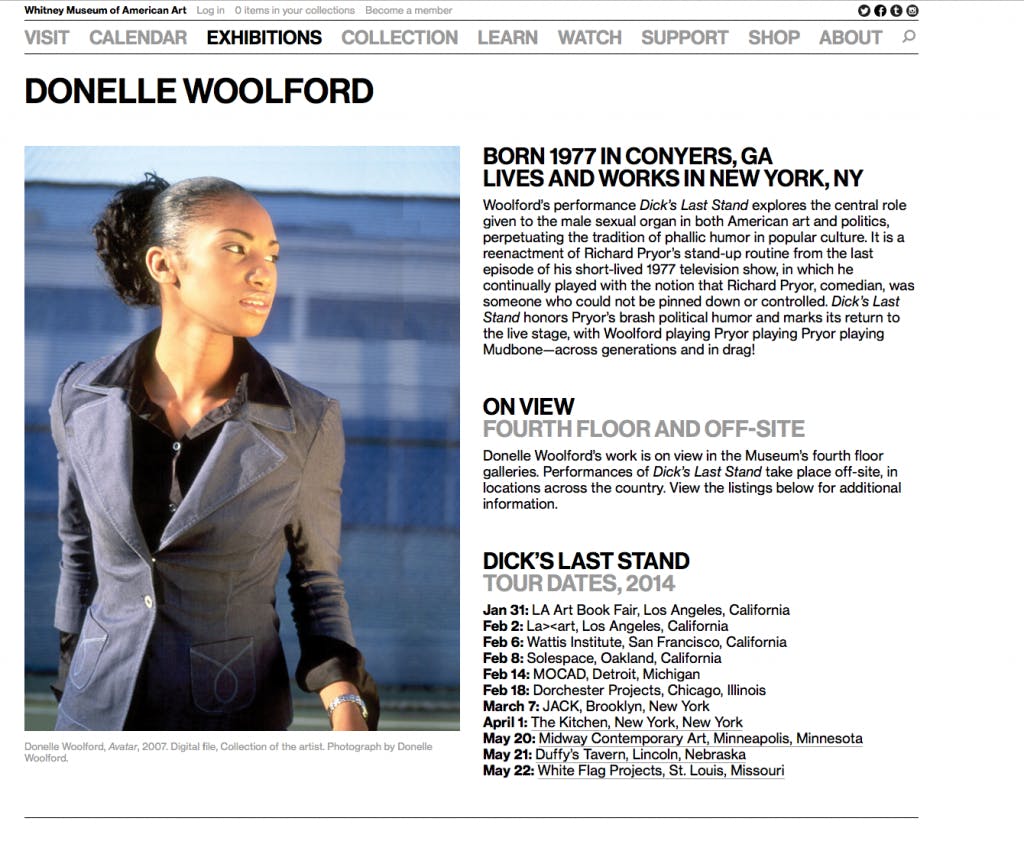
White is loosely based upon the controversy regarding the 2014 Whitney Biennial Exhibition of Contemporary Art. There was an outcry when the curators included a project by Joe Scanlan, a white artist who created work with a fictional persona, an African-American woman named Donelle Woolford. Mr. Scanlan hired African-American actresses to portray this “fictional” artist who then presented his art. The YAMS Collective, an international group of artists of color, withdrew their entry for the 2014 exhibition in protest of Scanlan and Woodward’s inclusion. In an article posted on Hyperallergic , YAMS Collective member Maureen Catbagan commented: “We felt that the representation of an established academic white man posing as a privileged African-American woman is problematic, even if he tries to hide it in an avatar’s mystique… It kind of negates our presence there, our collaborative identity as representing the African diaspora.”
Dramaturg Lisa Marie Rollins shared several articles with the cast and crew regarding the Joe Scanlan/Donelle Woodward controversy. In an interview with BOMB Magazine , Joe Scanlan describes his inspiration for Donelle Woolford:
Donelle Woolford began ten years ago when I first appropriated her name from a professional football player I admired. After the first collages happened in my studio, I liked them but they seemed like they would be more interesting if someone else made them, someone who could better exploit their historical and cultural references. So I studied the collages for a while and let them tell me who their author should be. From there the work has changed subtly—like the shift from Analytic to Synthetic Cubism—but the character of their maker, Donelle, has changed dramatically; she has become much more contradictory and complex.
Perhaps most fascinating is the Hyperallergic article Ms. Rollins shared that includes an interview with Jennifer Kidwell, one of the African-American actresses who portrays Donelle Woolford, who contends that “Donelle could be a platform for a truly significant discussion about curatorial practice as it concerns race and the politics of collaboration… The symbiosis of access and privilege inherent in this relationship is far more complex and provocative than most of the contention that’s hitherto been raised.”
Playwright James Ijames used this controversy from the world of visual arts as a springboard for White.
Racial Tourism
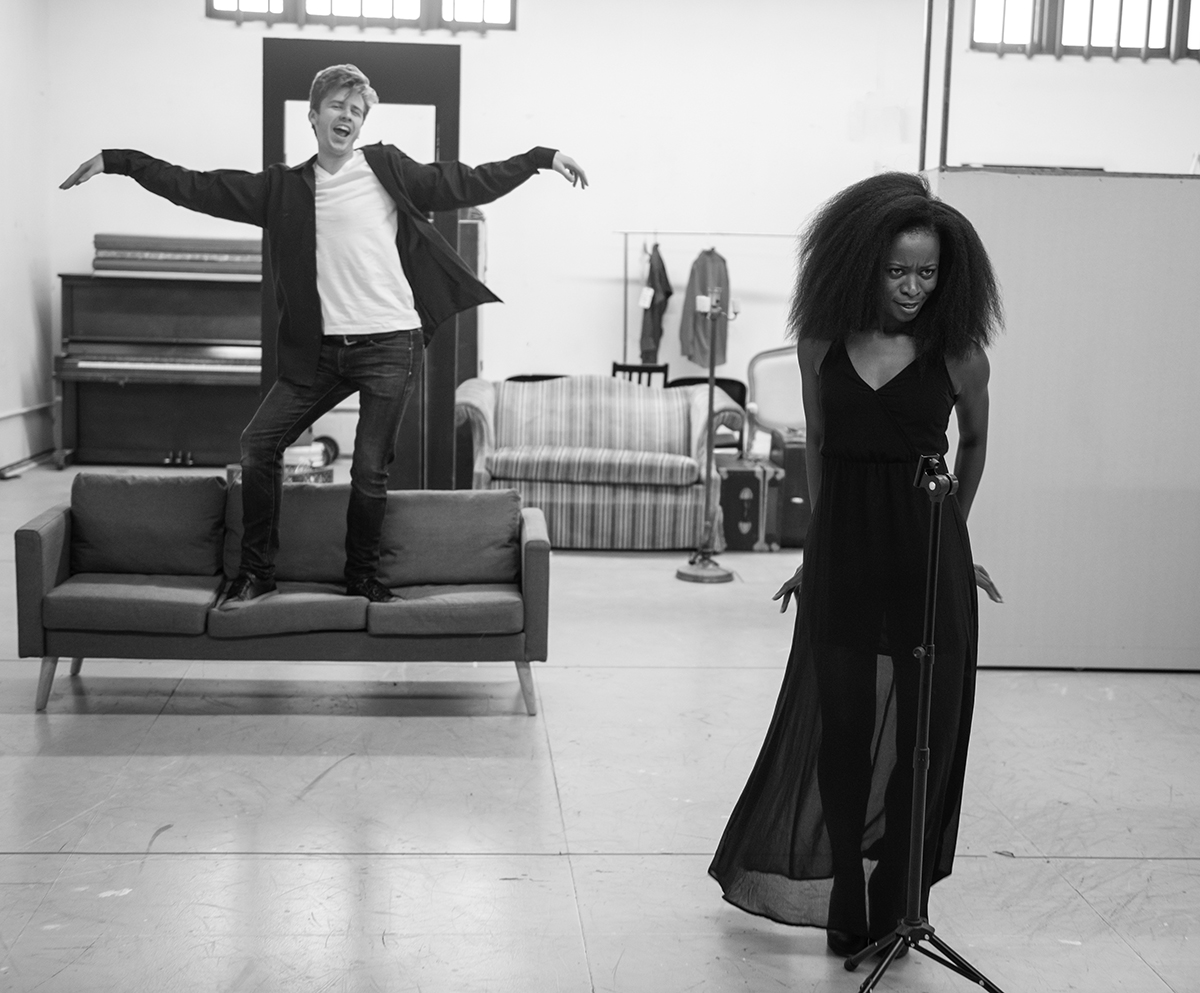
In White, Gus invites Vanessa, an African-American actress, to portray the artist who created his paintings, so that his work will be accepted for a prestigious exhibition. The following is an excerpt from Ijames incisively comic script:
GUS
You knoooooow. Every gay man has a black woman inside of him. Just dying to get out.
(Silence. In the silence, Gus feels: “Am I Right?” Vanessa feels: “Child please”)
VANESSA
Do you really believe that?
GUS
Oh no you didn’t girlfriend! Honey Boom! Yeah, child! You’ain’t know dat!? Don’t get me all twisted up in here.
VANESSA
Have you ever met a black woman…you know…in like, real life that talks like that?
GUS
I’m sure I have.
VANESSA
I see.
GUS
That’s why I think this matters so much. My work is really interrogating my own interiority. But having you present my work, I’m being more true to myself by exposing my inner self through you. Creating a real life version of…the black woman inside me. To be enjoyed by all. I want her voice to be heard. I want to create her with you.
VANESSA
Oh my god. I just read an article about this in The Atlantic. What did they call it? Uhph —
Racial Tourism! That’s it!
GUS
That’s a new one.
VANESSA
No it’s like… “Let me play double – dutch with the black girls on the playground cause they make me feel all empowered and fierce. They can teach me fun come backs and how to wag my finger and I can be just as fierce and fabulous as them but, without the burden of actually being a black girl.” I got that right?
GUS
Whoa…You don’t know me.
VANESSA
I don’t.
GUS
I’m not a racist.
VANESSA
This is really awkward for you.
GUS
I resent you saying that I am.
VANESSA
Did I say you were racist?
GUS
You implied it.
VANESSA
Implied?
GUS
Yes you —
VANESSA
Did the words, Gus, You, Are, A Racist come out my mouth.
GUS
No.
VANESSA
So…
GUS
I just felt that I needed to make that…clear.
VANESSA
Why?
(Silence)
Uh huh. Cause you know it’s questionable at the very least.
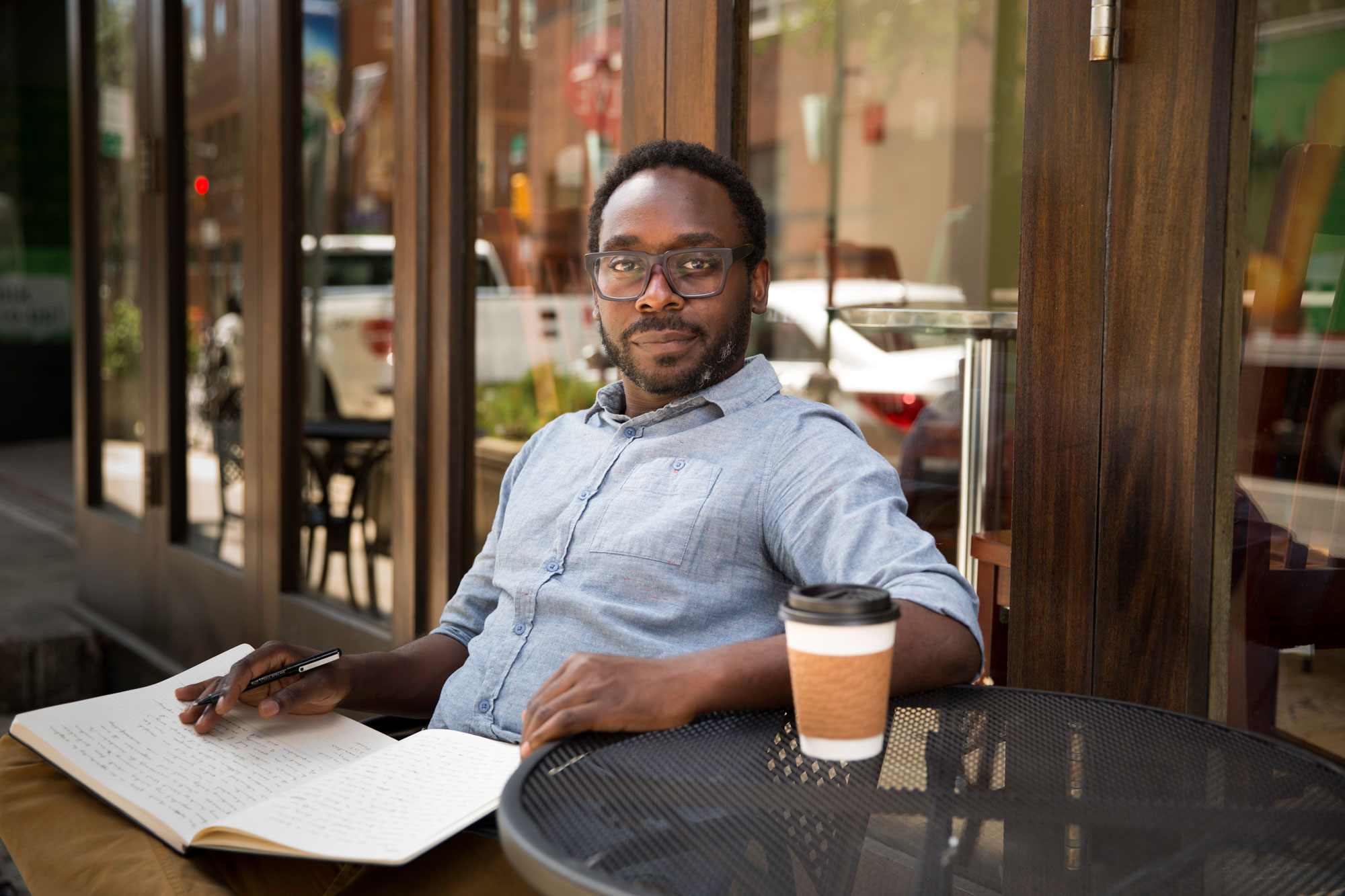
Paula Vogel says the job of the artist is to make the familiar strange and the strange familiar. This has always struck me as deeply true and fundamental to what I hope my work as a theatre-maker does. I’m preoccupied with inheritance and legacy. What do we get from those who came before us? What will we leave behind?
The plays ask an audience to work together towards examining this where we’ve been and where our current actions will lead us in the future. I want the audience to build together. To watch and to listen. The play is a gesture towards building community. Building a new kind of legacy.
Equal opportunity. No one is safe. We all need a mirror to fix our hair. I’m also obsessed with the American experiment. How we can use art to expose how imperfect this place is, in an effort to make it more perfect. “A more perfect union.” One play at a time…amiright!
Finally, if it’s not entertaining why the hell are we doing it? Make’m laugh. Make’m cry. Make’m call their senator. But by any means necessary. Make’m do something. Can’t change anybody’s mind if they’re asleep.
To learn more about James Ijames visit his website and/or check out this interview.
James Ijames is a Philadelphia-based performer and playwright. He has appeared regionally in productions at the Arden Theatre Company, the Philadelphia Theatre Company, InterAct Theatre Company, The Wilma Theatre, Baltimore Center Stage, Mauckingbird Theatre Company, and People’s Light and Theatre. James’s plays have been produced by Flashpoint Theater Company, Orbiter 3, Theatre Horizon (Philadelphia, PA), the National Black Theatre (NYC), Ally Theatre (Washington DC) and have received development with PlayPenn New Play Conference, the Lark, Playwright’s Horizon, Clubbed Thumb, Villanova Theater, the Gulfshore Playhouse, Wilma Theater, Azuka Theatre, and Victory Garden. James is the 2011 F. Otto Haas Award for an Emerging Artist recipient, and he also won two Barrymores for Outstanding Supporting Actor in A Play for Superior Donuts and Angels in America and one Barrymore for Outstanding Direction of a Play for The Brothers Size with Simpatico Theatre Company. James is assistant professor of theatre at Villanova University and resides in South Philadelphia.

